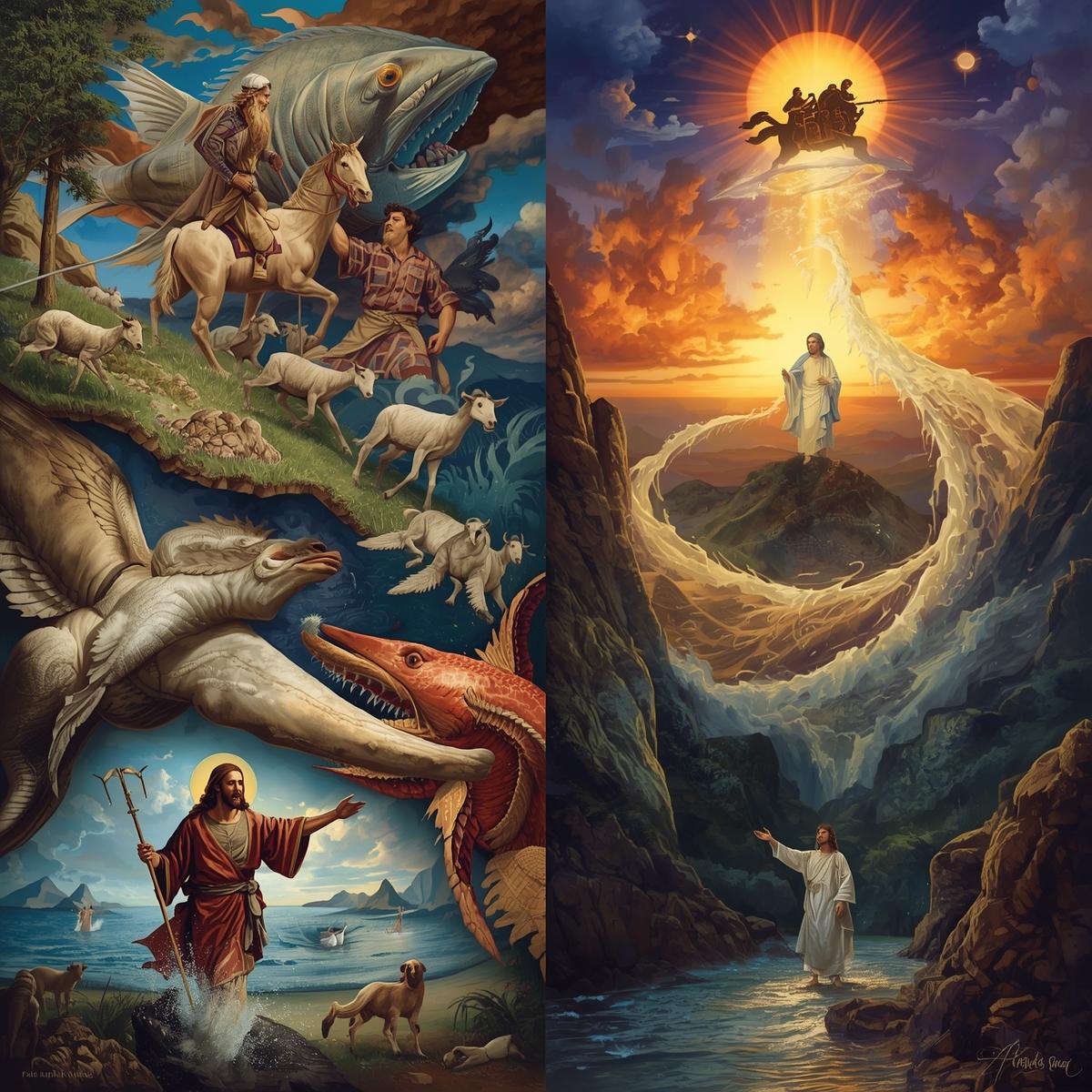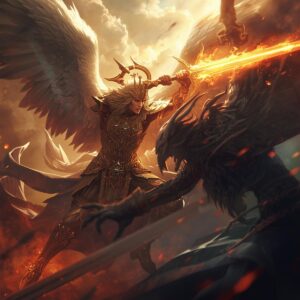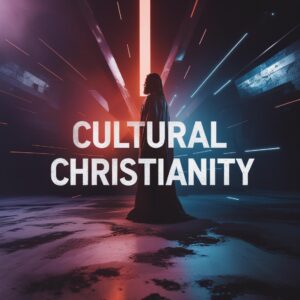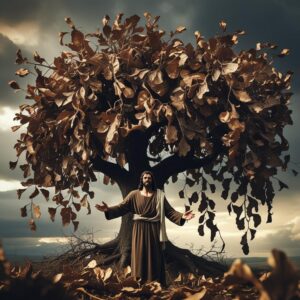This is a three-part post; it would be nice to also read up on the other two here (Major Prophets) and here (Minor Prophets).
So before we peek into the lives of these remarkable individuals in the Bible, it’s important to understand what the title “prophet” truly means, both in its original context and in its function.
The Meaning of the Word:
- Hebrew (Navi – נָבִיא): The most common Hebrew word for prophet, “Nabi” or “Navi,” fundamentally means “a spokesperson” or “one who is called.” It comes from the root verb “to bubble up, pour forth, declare.” This is a powerful image: a prophet is someone called by God to bubble forth with His message, declaring it to the people.
- Greek (Prophētēs – προφήτης): The Greek term used in the New Testament breaks down into pro (meaning “before” or “for”) and phēmi (meaning “to speak”). Thus, a prophētēs is “one who speaks forth” or “one who speaks for another,” specifically, one who speaks for God.
The prophets of old were God’s emergency broadcast system. They were not speaking about their own ideas of the future; they were declaring God’s perspective on the present, which inevitably revealed the consequences, both of judgment and hope, that lay ahead. Their lives and words were dedicated to tearing down falsehood and rebuilding a foundation of truth, always pointing people back to a right relationship with God.
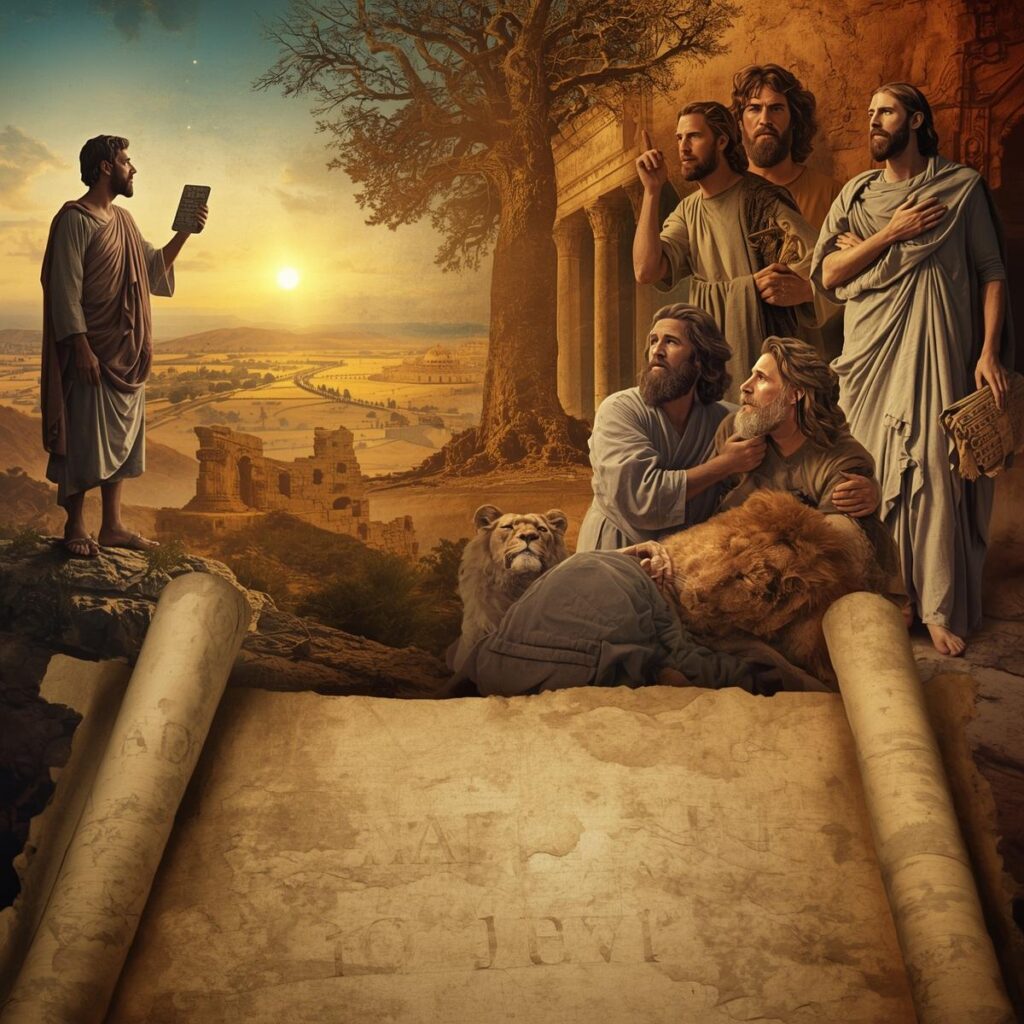
What a Prophet IS and IS NOT
To clarify the role of a prophet, it’s helpful to contrast common misconceptions with the biblical reality. A prophet is not primarily a fortune-teller gazing into a crystal ball. Their role was far more comprehensive and urgent.
| A Prophet IS… | A Prophet IS NOT… |
|---|---|
| A Spokesperson for God: Their primary role was to deliver God’s word to the people. They were a divine mouthpiece, often introducing their messages with, “Thus says the Lord…” | A Mere Fortune-Teller: While they foretold future events, it was always to call people to present-day action, repentance, faith, or obedience. |
| A Covenant Enforcer: They reminded Israel of the blessings and curses of their covenant with God, calling them back to faithfulness when they strayed. | A Psychic or Medium: They did not use magic, divination, or contact the dead. Their power and knowledge came solely from God’s revelation. |
| A Truth-Teller & Social Reformer: They confronted sin at every level from the idolatry of the masses to the injustice of the courts and the corruption of kings. They were God’s emergency broadcast system for a nation in moral decline. | A Popular Figure: Their message was often one of judgment and correction, making them targets of persecution, ridicule, and violence. |
| A Seer of Visions: God communicated with them through dreams, visions, and direct revelation, allowing them to see the world from a divine perspective. | A Self-Appointed Critic: A true prophet did not speak their own opinions. They were compelled by a direct call from God, often against their own will (e.g., Jeremiah, Jonah). |
| A Intercessor: They stood in the gap between God and the people, pleading for mercy and appealing to God on behalf of the nation (e.g., Moses, Amos, Samuel). | Always Predicting the Distant Future: Many of their prophecies were about immediate, historical events meant to validate their message and guide their generation. |
In essence, a prophet was God’s authorized ambassador, commissioned to tear down falsehood and rebuild truth, to warn of the consequences of sin and proclaim the hope of God’s faithfulness. Their lives were often a living illustration of their message, and their voices echo through history, calling all people into a right relationship with their Creator.
Now, with this foundational understanding in place, let us journey through the lives and legacies of these extraordinary men and women, starting with the Lawgiver himself, Moses.
Moses: The Founder of the Prophetic Line
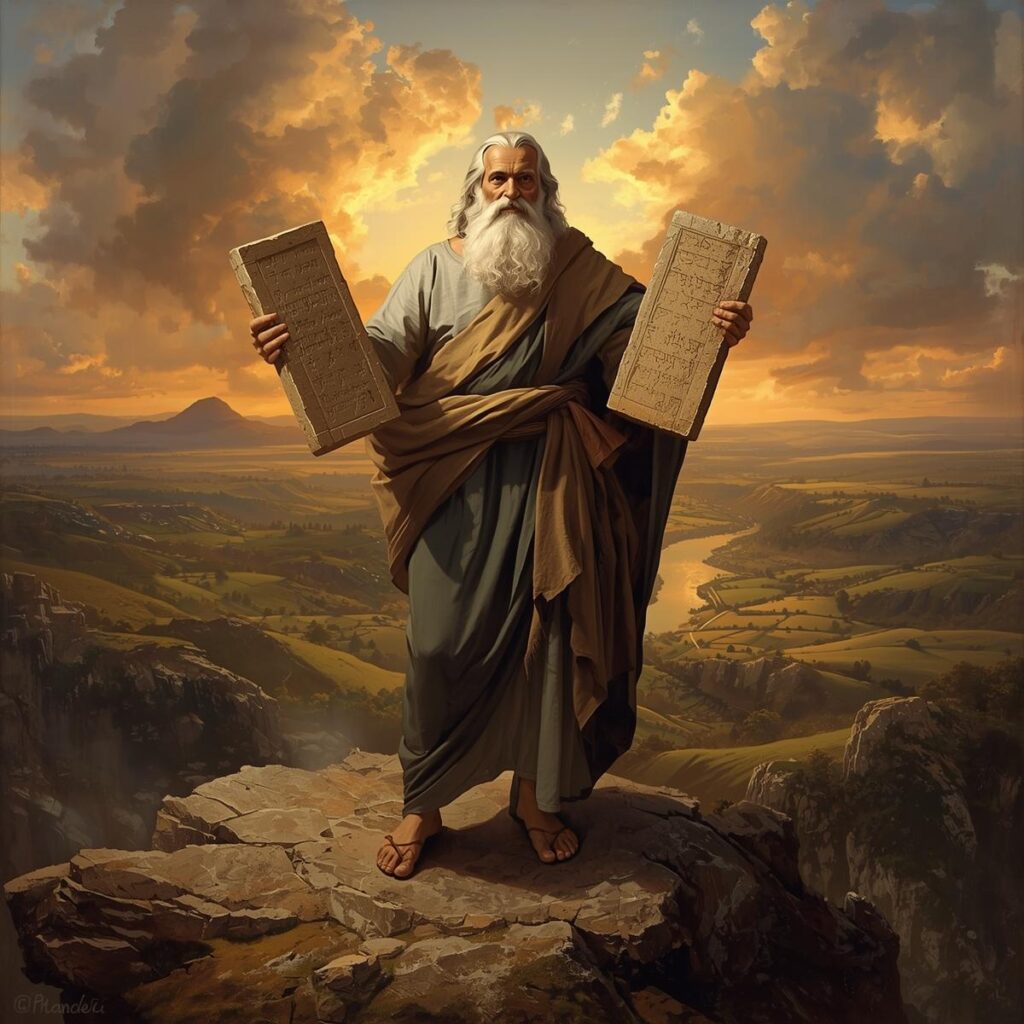
Biography: Born a Hebrew slave in Egypt, Moses was rescued by Pharaoh’s daughter and raised in the royal court. After killing an Egyptian taskmaster, he fled to Midian, where he worked as a shepherd for 40 years. God called him from a burning bush to be the deliverer of Israel, making him the archetype for all future prophets.
Timeline & Prophecies: c. 1525-1405 BC. His entire life was prophetic. He pronounced the Ten Plagues upon Egypt as judgments against its gods. He foretold the Exodus and led it. His most profound prophecies are the “Blessings and Curses” in Deuteronomy 28-32, where he meticulously outlined the future consequences of Israel’s obedience or disobedience to the covenant. He also prophesied that God would “raise up for you a prophet like me from among you, from your brothers; it is to him you shall listen” (Deuteronomy 18:15), a prophecy fulfilled in Jesus Christ (Acts 3:22-23).
Fulfillment: The Exodus, the giving of the Law at Sinai, and the 40 years of wilderness wandering all happened under his leadership. The blessings and curses have been tragically and precisely fulfilled throughout Israel’s history of conquest, exile, and restoration.
Family & Death: He married Zipporah, the daughter of a Midianite priest, and had two sons, Gershom and Eliezer. At the age of 120, God led him to the top of Mount Nebo, showed him the Promised Land, and then he died there by the Lord’s command. God Himself buried Moses in an unknown location in the land of Moab (Deuteronomy 34:5-6). The uniqueness of his relationship with God is summarized in Deuteronomy 34:10: “And there has not arisen a prophet since in Israel like Moses, whom the Lord knew face to face.”
Elijah: The Firebrand of God
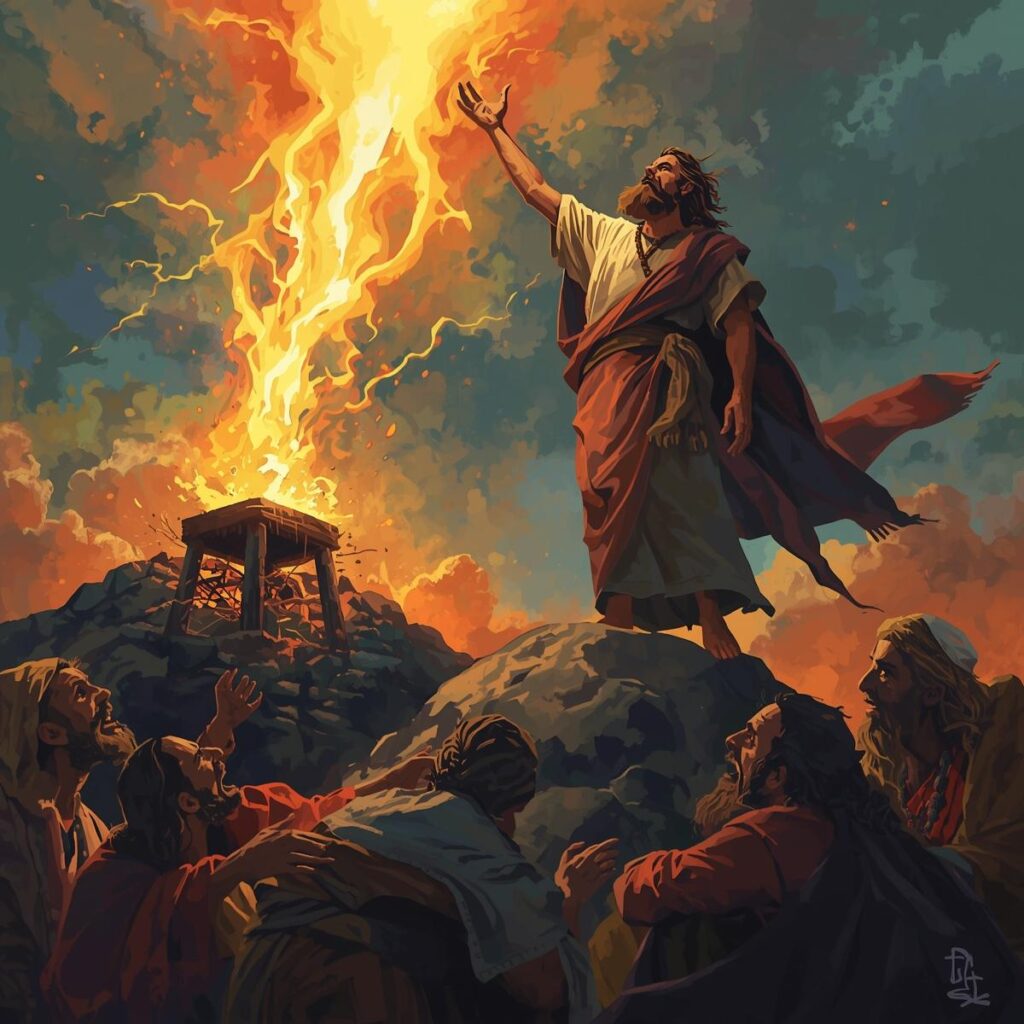
- Biography: Elijah (“Yahweh is my God”) was the great prophet of the northern kingdom of Israel during the reign of the wicked King Ahab and Queen Jezebel. He appeared suddenly, a towering figure of divine power and confrontation, embodying the covenant lawsuit of God against Baal worship.
- Timeline & Prophecies: c. 9th Century BC (during the reigns of Ahab and Ahaziah). His most famous confrontation was on Mount Carmel, where he called down fire from heaven to defeat the 450 prophets of Baal (1 Kings 18). He pronounced a multi-year drought upon the land as judgment, which began and ended at his word. He also received the law on Mount Horeb, much like Moses, in a “still, small voice.”
- Fulfillment: The drought ended exactly as he declared. His prophecy against Ahab and Jezebel was fulfilled precisely: Ahab died in battle, and Jezebel was thrown from a window and eaten by dogs (1 Kings 22:34-38; 2 Kings 9:30-37).
- Family & Death: The Bible records no wife or children. In one of the most dramatic events in Scripture, Elijah did not die. He was taken up to heaven alive in a whirlwind, accompanied by a chariot and horses of fire, while his successor Elisha looked on (2 Kings 2:11-12). This unique departure fueled expectations of his return (Malachi 4:5), which was fulfilled in the spirit and power of John the Baptist (Matthew 11:13-14).
Elisha: The Prophet of Miraculous Grace

Biography: Elisha (“God is salvation”) was the chosen successor of Elijah. He was a farmer when Elijah called him by throwing his mantle upon him. Elisha’s request for a “double portion” of Elijah’s spirit was granted, and he became the leading prophetic figure in Israel for decades.
Timeline & Prophecies: c. 9th Century BC (after Elijah’s departure). His ministry was characterized by miraculous deeds that often brought life and provision: he purified a poisonous spring, provided endless oil for a widow, raised the Shunammite woman’s son from the dead, healed Naaman of leprosy, and made an iron axe head float. He also gave strategic prophetic guidance to kings in their military campaigns.
Fulfillment: His prophecies of military success for Israel and Judah were consistently fulfilled (e.g., 2 Kings 3, 6-7). Even after his death, a miracle occurred that confirmed his lifelong anointing.
Family & Death: The Bible does not mention a wife or children. He died of an illness during the reign of King Joash. The power of his ministry was so profound that even in death, God worked through him: when a dead man’s body touched Elisha’s bones in a tomb, the man was instantly restored to life (2 Kings 13:20-21). This posthumous miracle is a unique testament to the life-giving power of God that resided with him.
The Bridge between the OT and NT Prophets: John the Baptist
John the Baptist: The Final Prophet of the Old Covenant
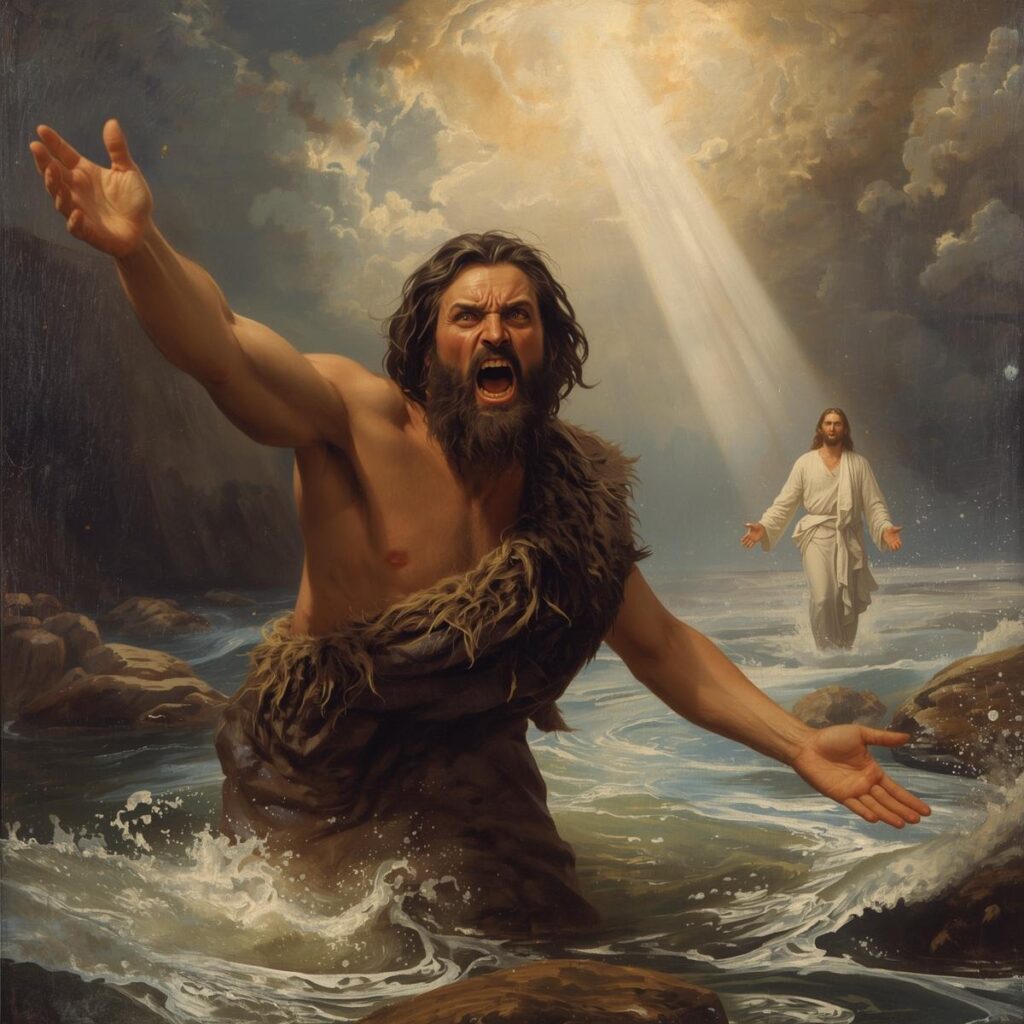
Biography: The son of the priest Zechariah and his wife Elizabeth (a relative of Mary, the mother of Jesus). His birth was foretold by the angel Gabriel. He lived as an ascetic Nazirite in the wilderness of Judea, dressing in camel’s hair and sustaining himself on locusts and wild honey.
Timeline & Prophecies: c. AD 27-30. He was the prophesied forerunner (Isaiah 40:3, Malachi 4:5) who prepared the way for the Messiah. His core message was a fiery call to repentance: “Repent, for the kingdom of heaven is at hand!” (Matthew 3:2). He baptized Jesus in the Jordan River, inaugurating His public ministry, and famously identified Him as “the Lamb of God, who takes away the sin of the world!” (John 1:29). His most humble declaration was, “He must increase, but I must decrease” (John 3:30).
Fulfillment: Jesus Himself declared that John was the Elijah who was to come (Matthew 11:13-14), thus fulfilling the prophecy of Malachi 4:5. His role in baptizing Jesus and identifying Him as the Messiah was the ultimate fulfillment of his prophetic calling.
Family & Death: He was a cousin of Jesus. He was beheaded by order of Herod Antipas after he publicly condemned Herod’s unlawful marriage to his brother’s wife, Herodias. Herodias’s daughter (traditionally named Salome) danced for Herod, who promised her anything. At her mother’s urging, she requested John the Baptist’s head on a platter, a request Herod granted (Matthew 14:1-12). His disciples came, took his body, and laid it in a tomb.
A prophet is not just a predictor of fate, but the voice of God’s truth, boldly. They were called to make God’s perspective known by calling the people back to covenant faithfulness and pointing the way toward His ultimate redemption.

